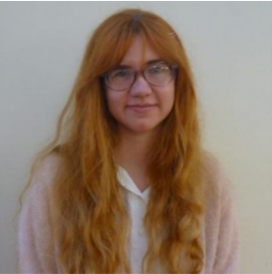Author: Jessica Whitfield, Ulster University, Belfast, Northern Ireland, UK.

Hull Freedom Festival was the first event I ever volunteered on. As a painfully shy child who had grown into a socially anxious teenager, it was becoming increasingly obvious that this would be a problem in the world of work. Hence, I signed up to volunteer. Eight years and hundreds of hours of volunteering later, I can say at least on a personal level, volunteering has been an empowering experience.
It was this personal connection which led to an MA project and later this research, about the Hull City of Culture 2017 volunteer programme. An interpretivist and longitudinal approach highlighted the intangible impacts felt by volunteers. Whilst they also saw benefits for the city more widely, it was the effect that volunteering had on their own wellbeing that really stood out. In particular, the ways in which it empowered them to engage further with civic life.
Whilst this small number of case studies cannot be representative of the whole volunteer cohort, the recurrence of themes from both sets of participants, in 2019 and 2021, suggests a wider trend. A range of impacts were noted, many of which related directly to wellbeing. The participants emphasised the enjoyment they felt when volunteering, a very surface level aspect of wellbeing (‘Well-being concepts’, 2018).
Similarly, a sense of social connection is one psychological benefit associated with volunteering, with volunteers being less likely to report feelings of loneliness or isolation (Stephens et al., 2015, p.23). Indeed, all but one participant noted new and diverse social connections. The notion of a volunteer family was also expressed, demonstrating the depth of feeling. Two participants were very candid about how the volunteer programme helped them with their mental health. Volunteering then, has the potential to have positive intangible impacts on those who participate.
These intangible or ‘soft’ impacts are more difficult to capture, and this study certainly benefitted from the longitudinal approach. How, then, does this move back into the realms of the tangible? Likely related to the aforementioned impacts, one of the reoccurring themes across participants was a growth in personal confidence. A lack of confidence is a barrier which can obstruct participation in volunteering (Nesbit et al., 2016, p.610). This in of itself then, is a positive impact of volunteering with Hull City of Culture.
However, participants cited a direct correlation between this and gaining new opportunities. These ranged from public speaking or theatrical performance, paid employment, and other volunteering opportunities, with the police, vaccination centres or a mental health support service. Though it cannot be the only factor in these new opportunities, the self-reported nature of this finding means it cannot be overlooked. With such a wide variety of civic pursuits from a small number of participants, the programme wide implications are quite astounding.
The intangible, personal benefits felt by the volunteers are one of the most important outcomes of Hull City of Culture 2017. They continue to manifest years after the event, in ways which became more tangible, as these volunteers pursued further opportunities. An awareness of this potential can help in the construction of volunteer programmes, to encouraging more, and more diverse people to volunteer, as well as to give volunteers the tools and confidence to continue engaging positively with civic life.

Fairer society
We are passionate about working with researchers globally to deliver a fairer, more inclusive society. This perhaps has never been more important than in today’s divided world.
